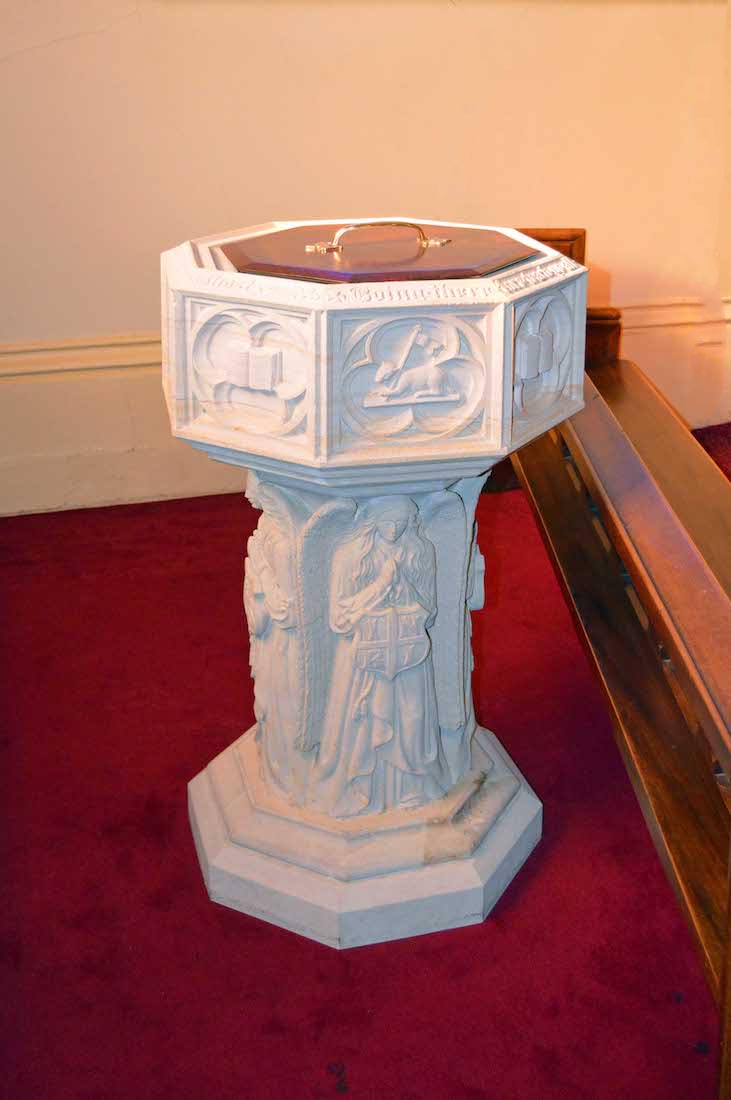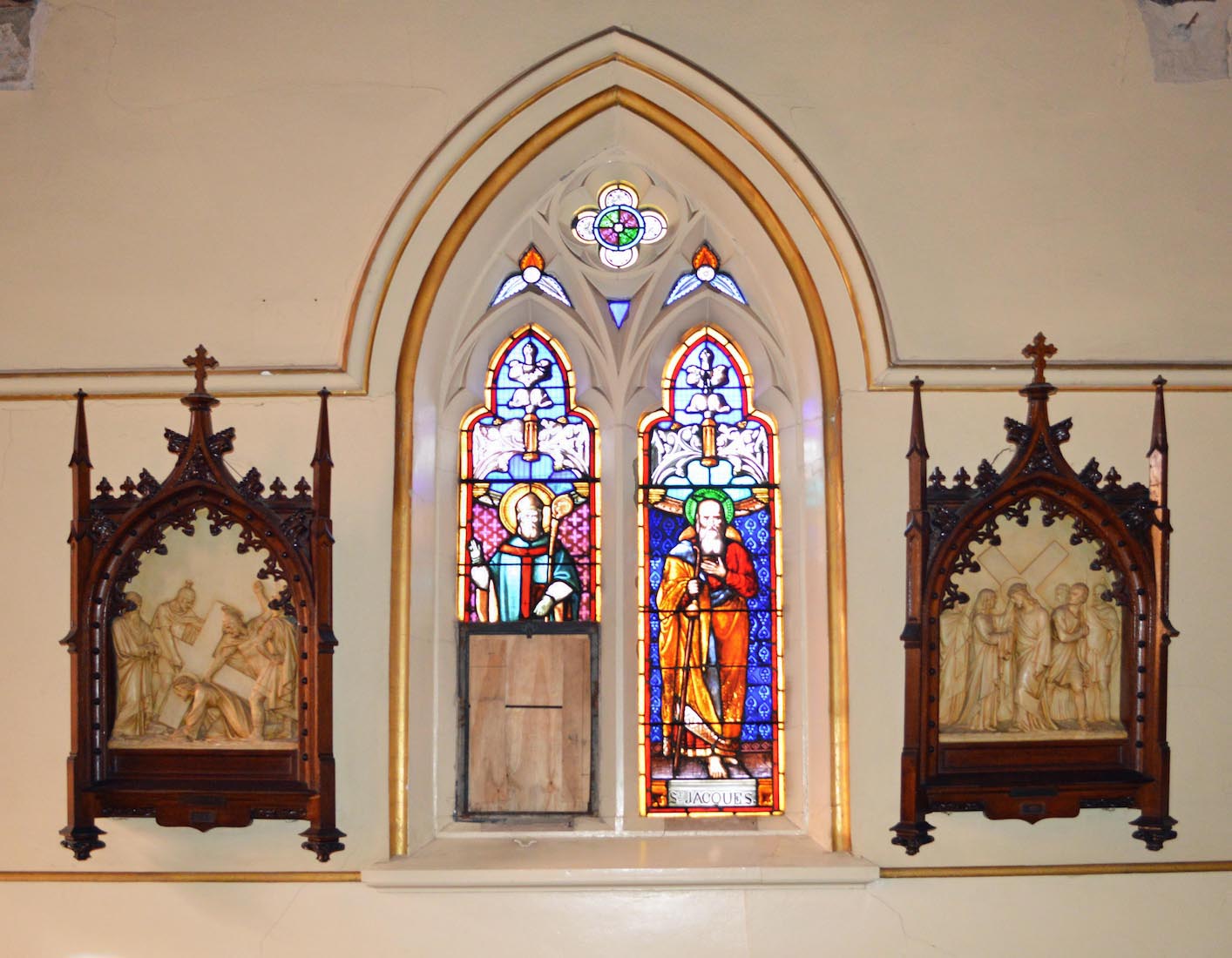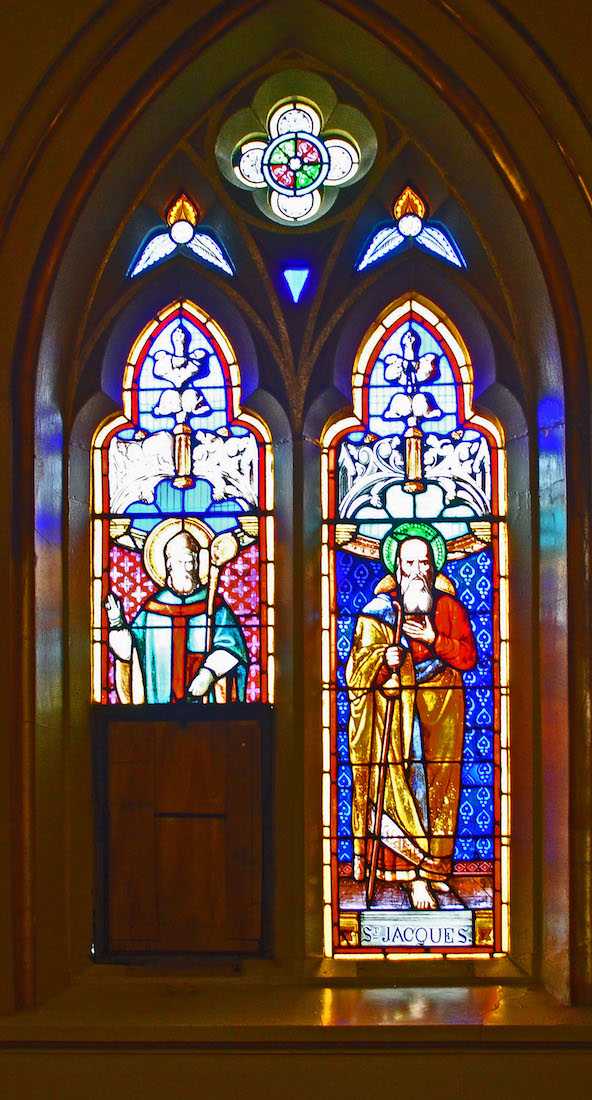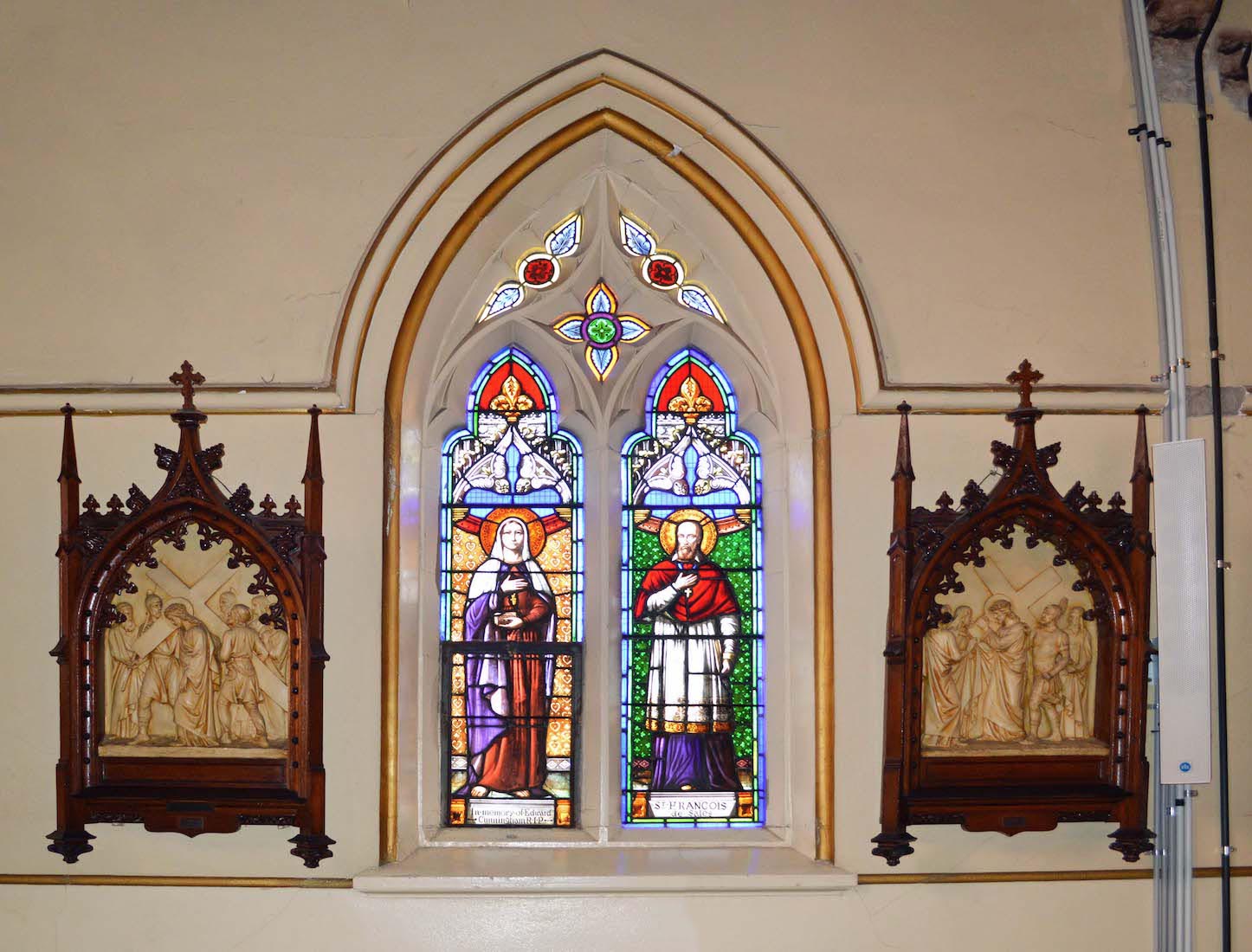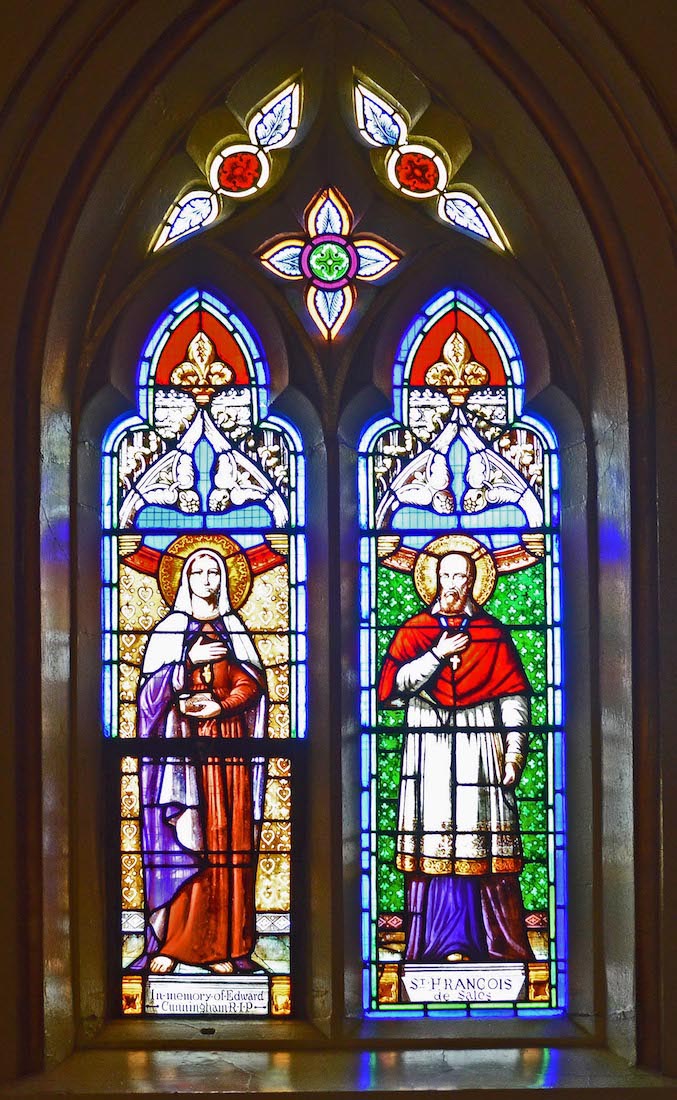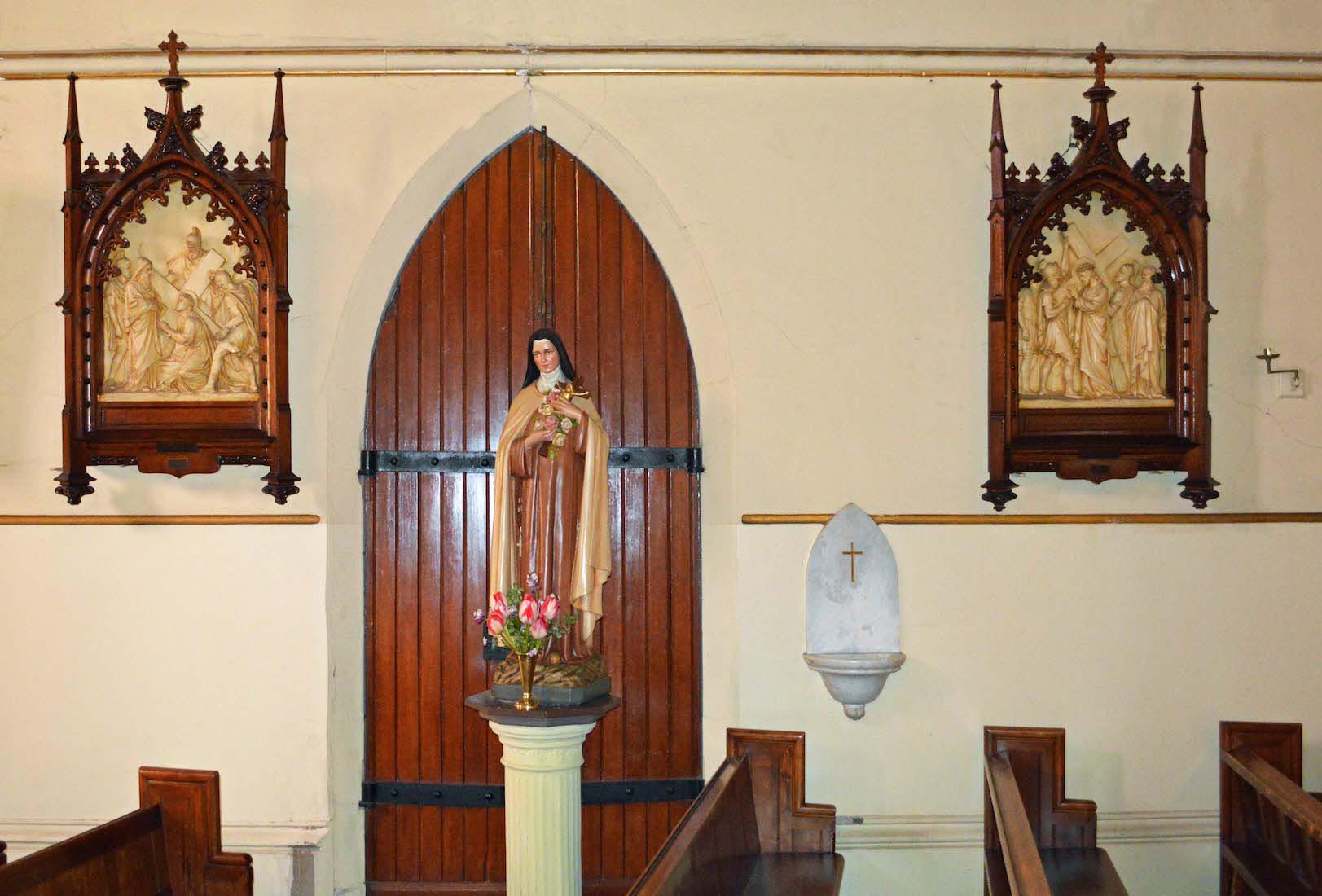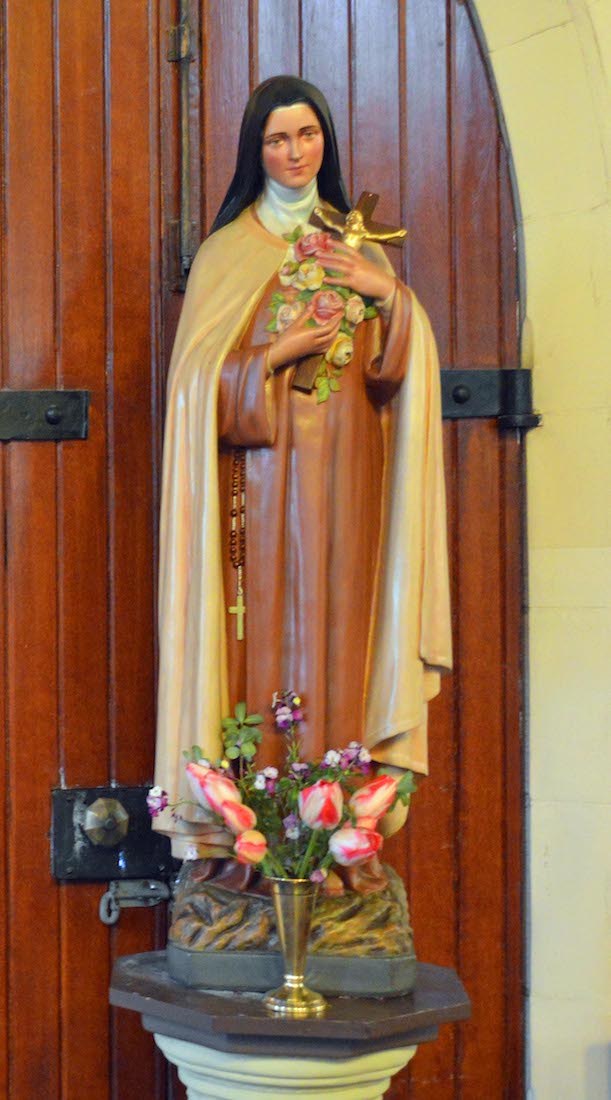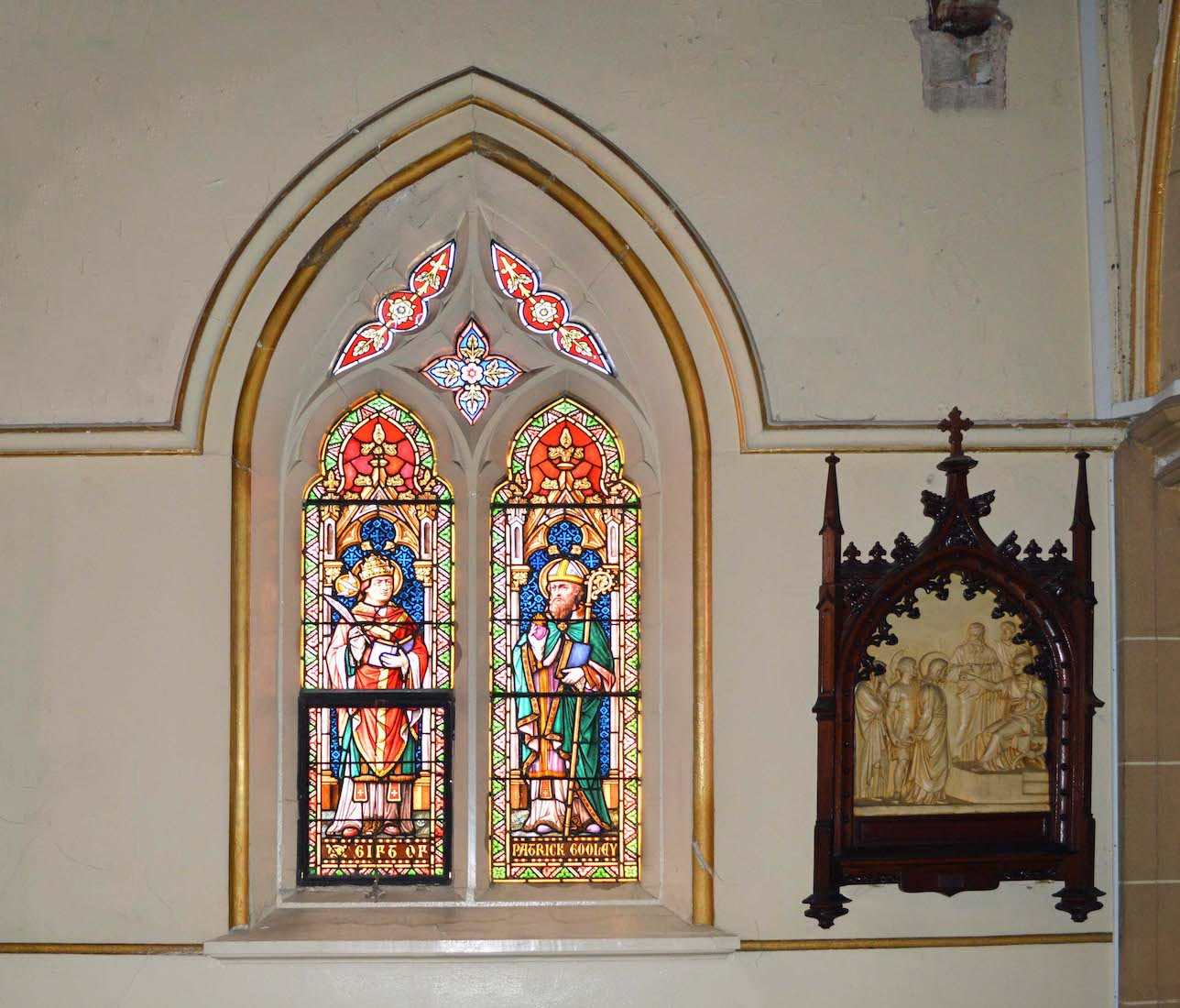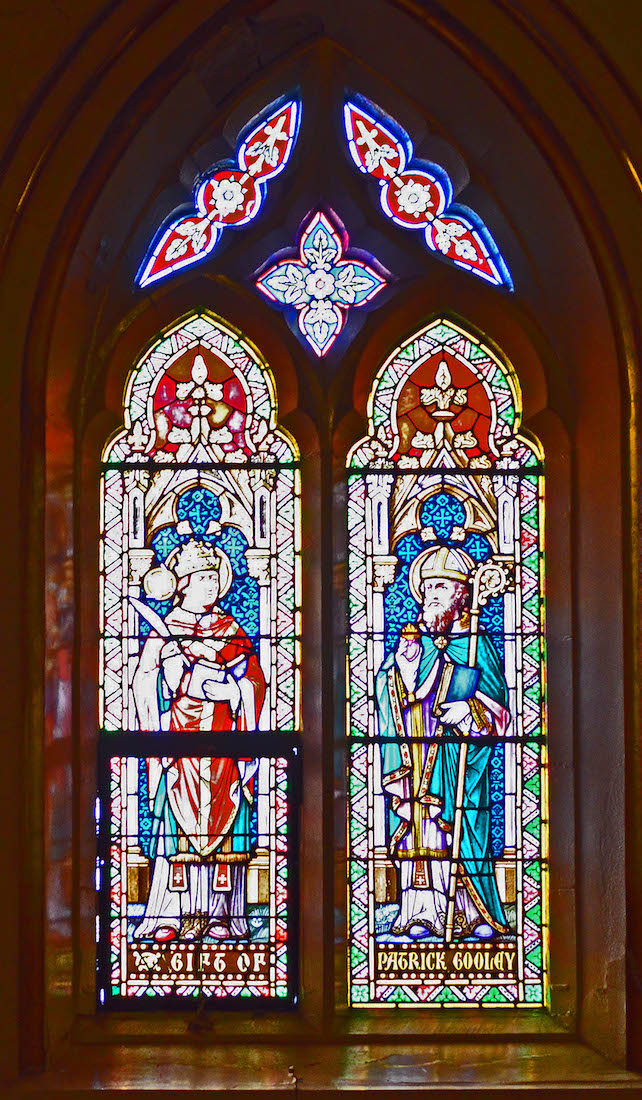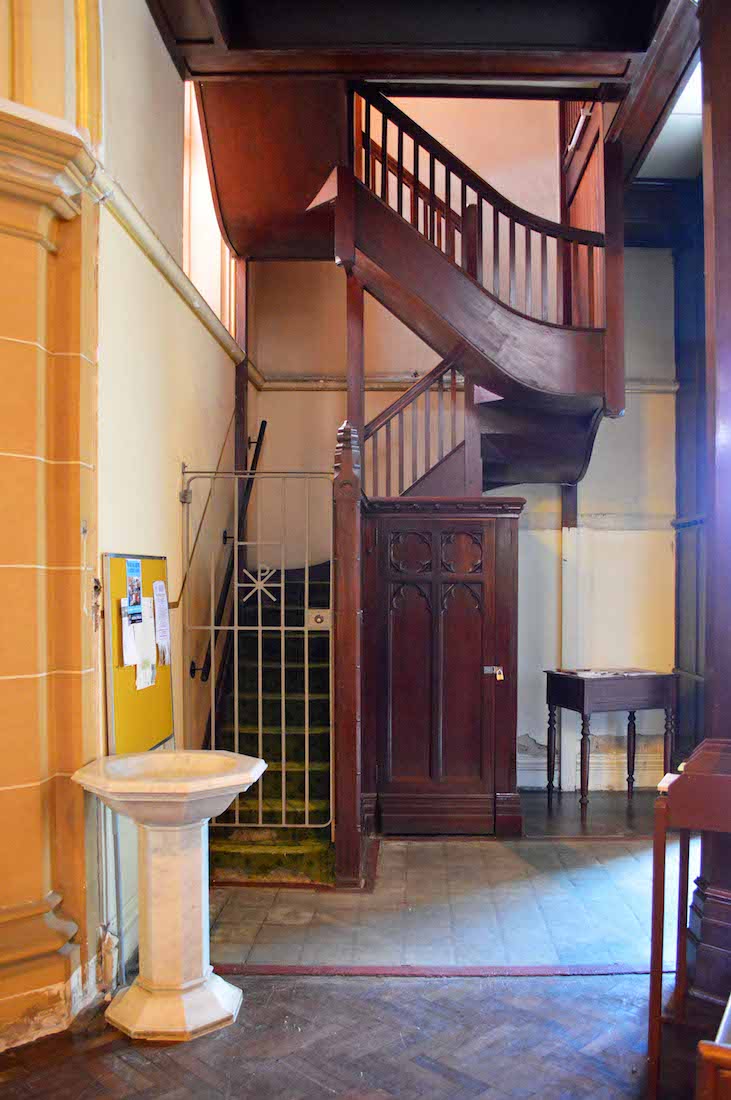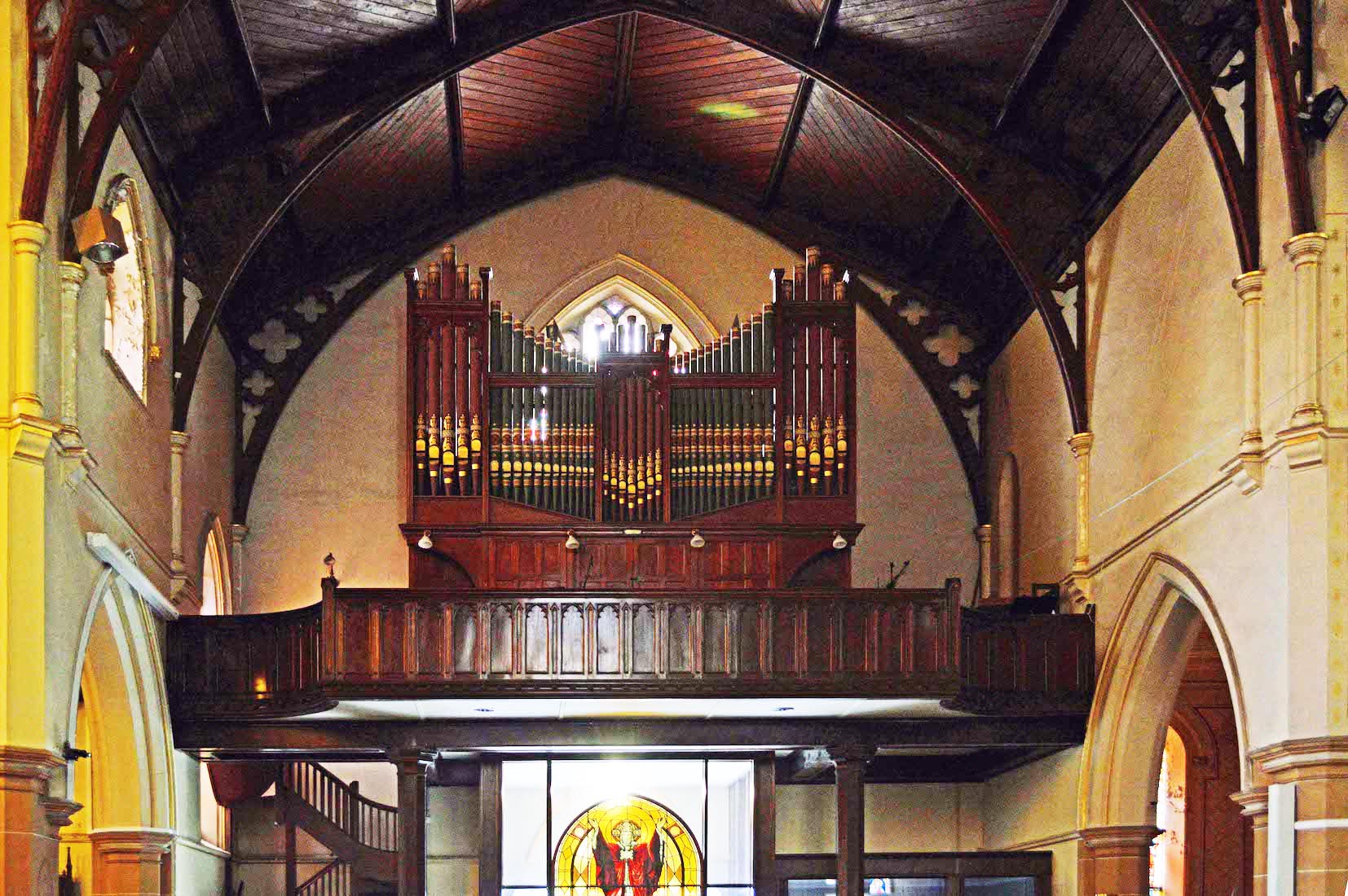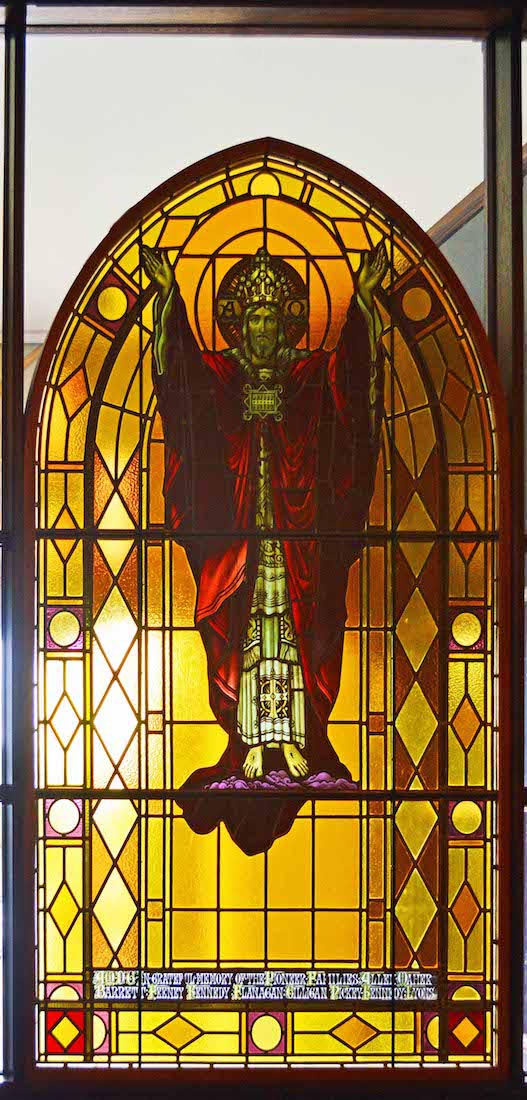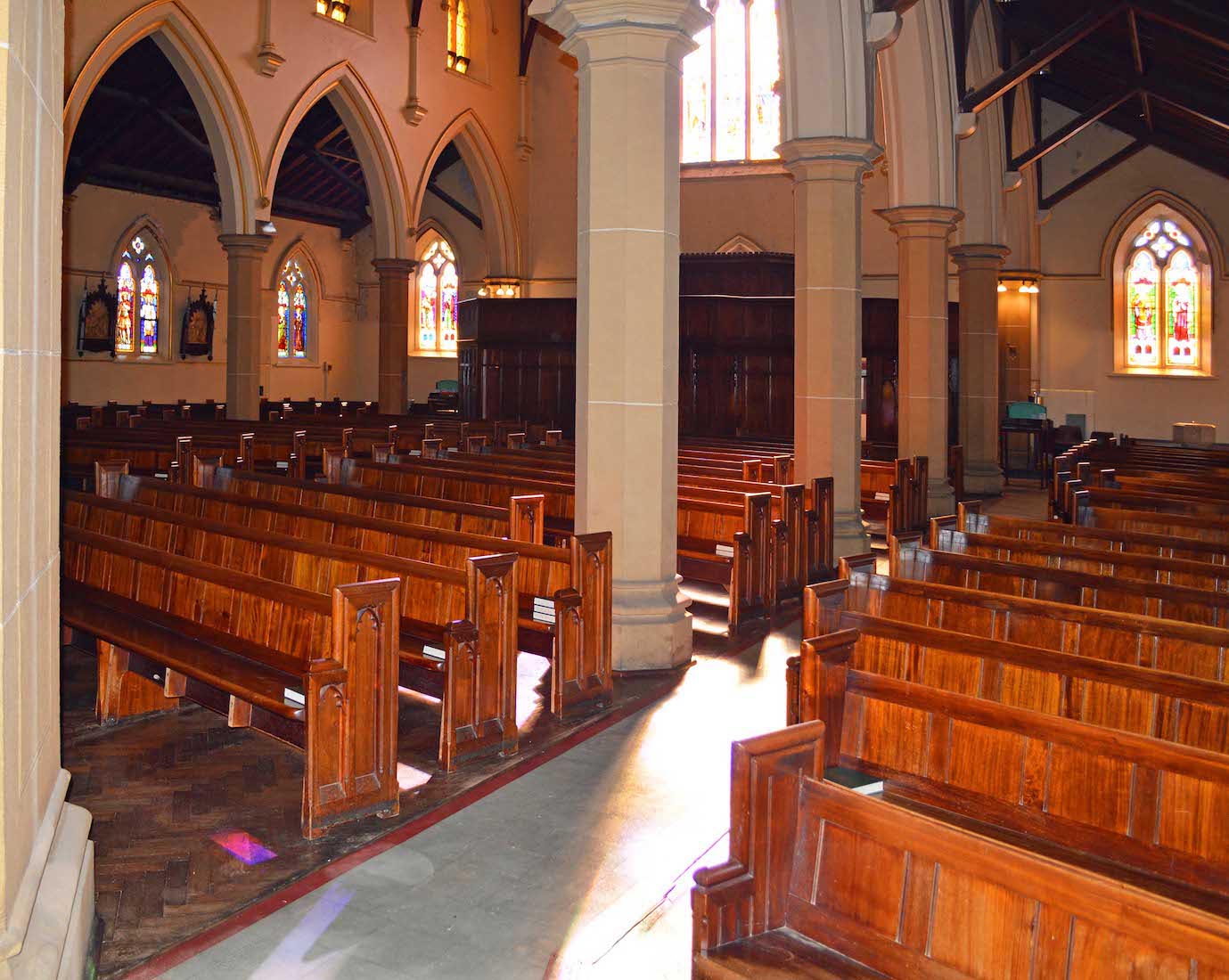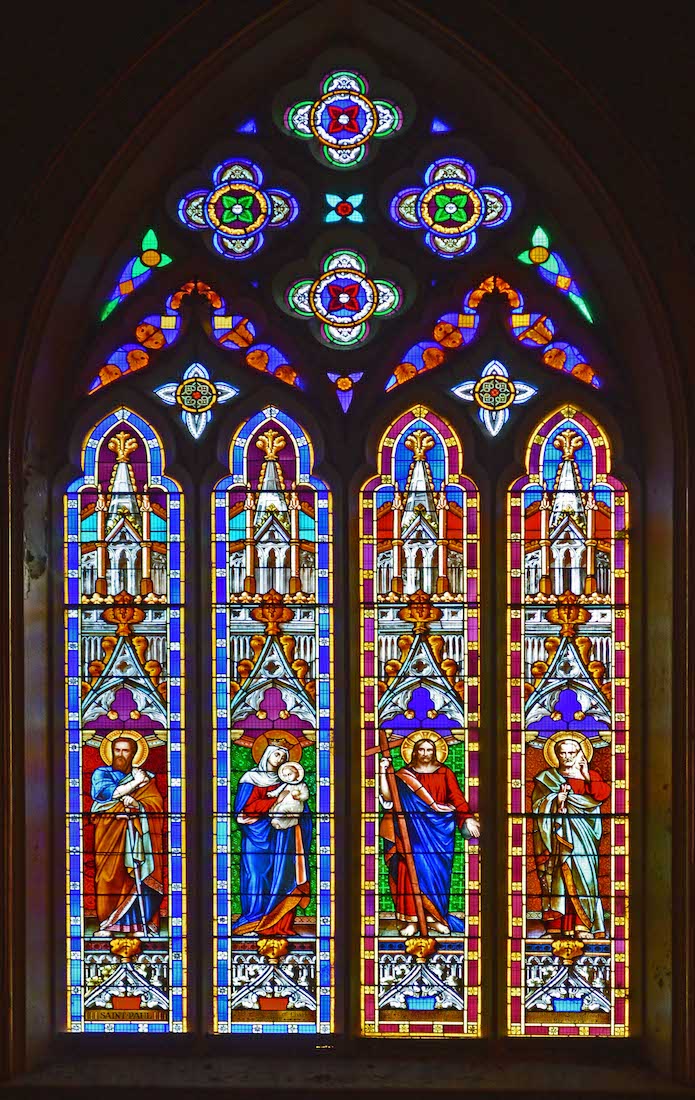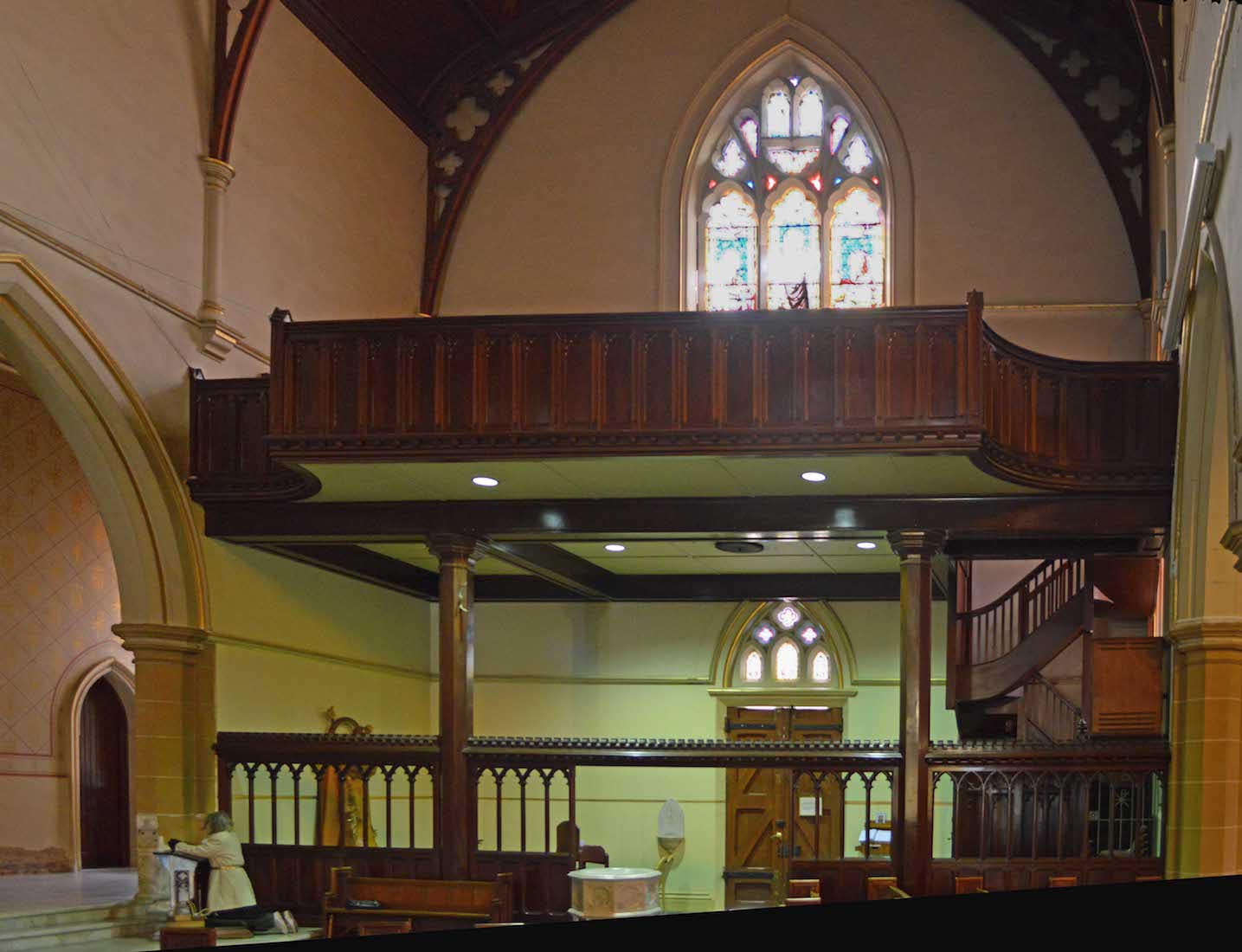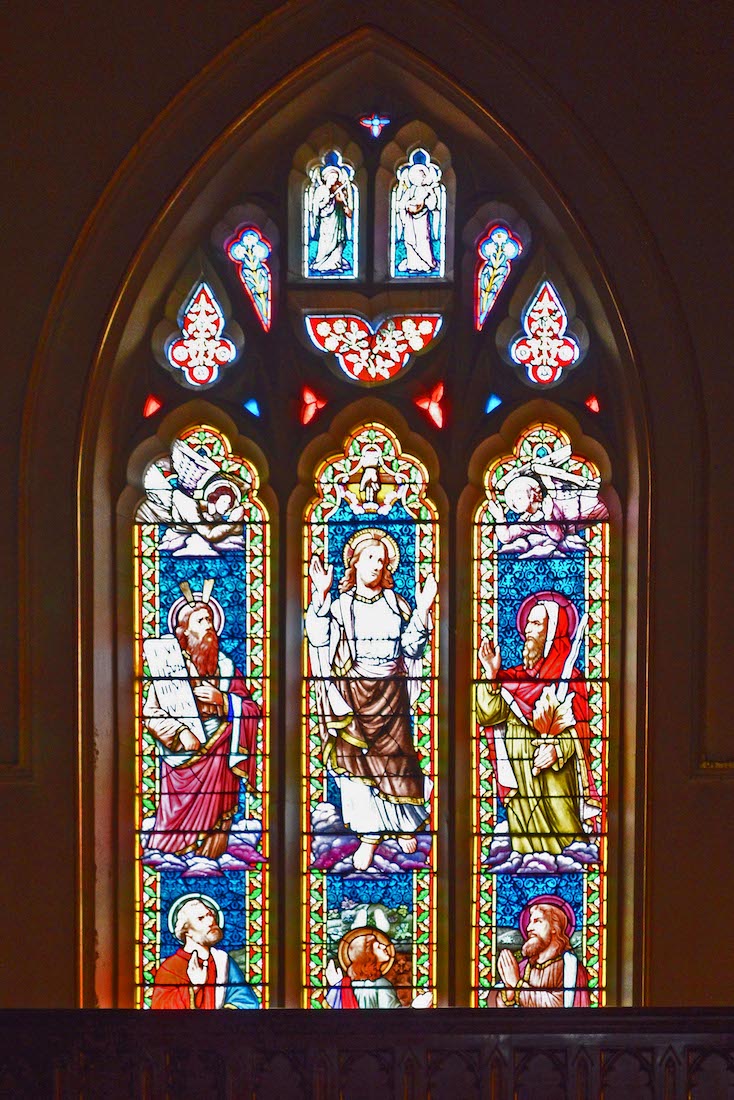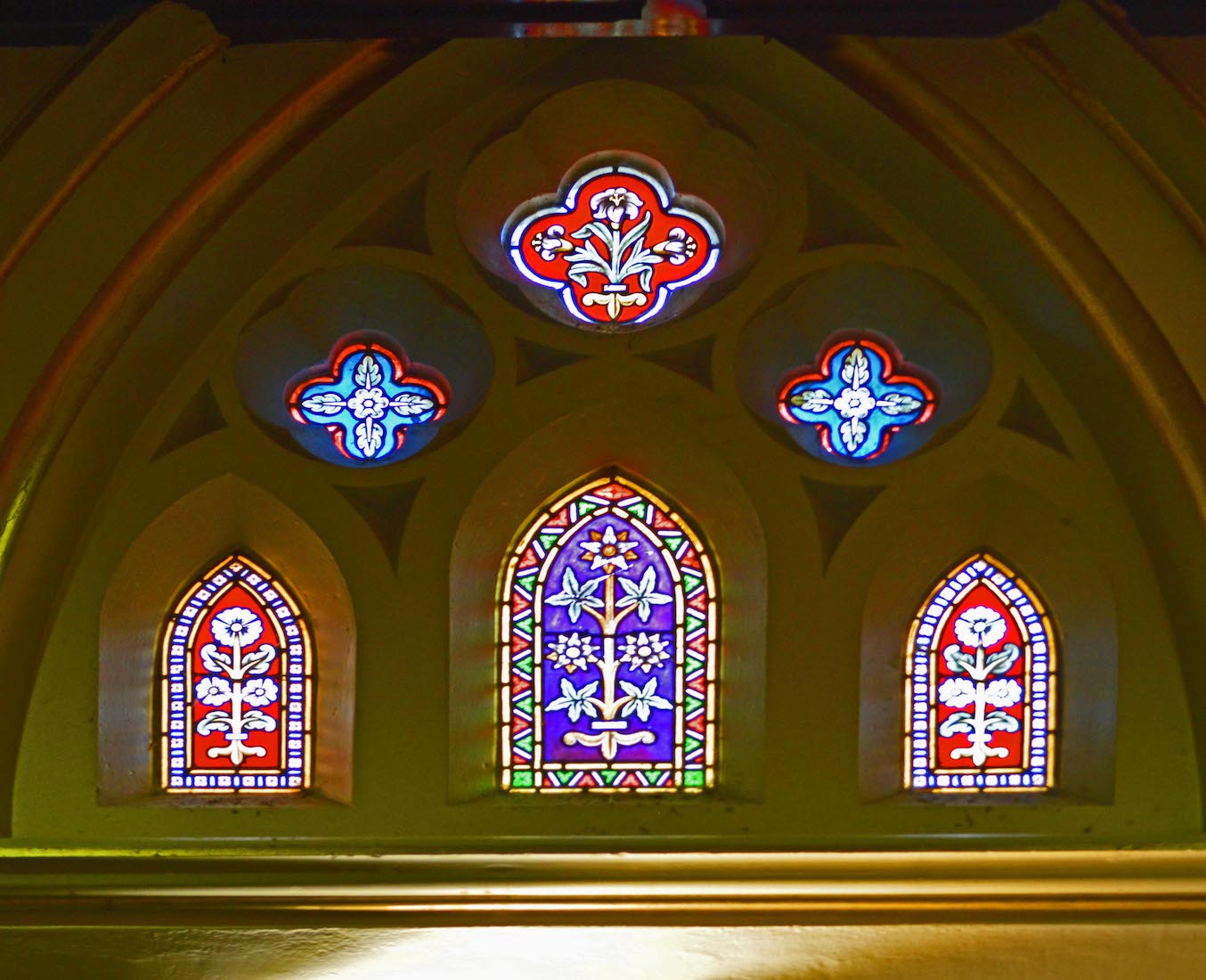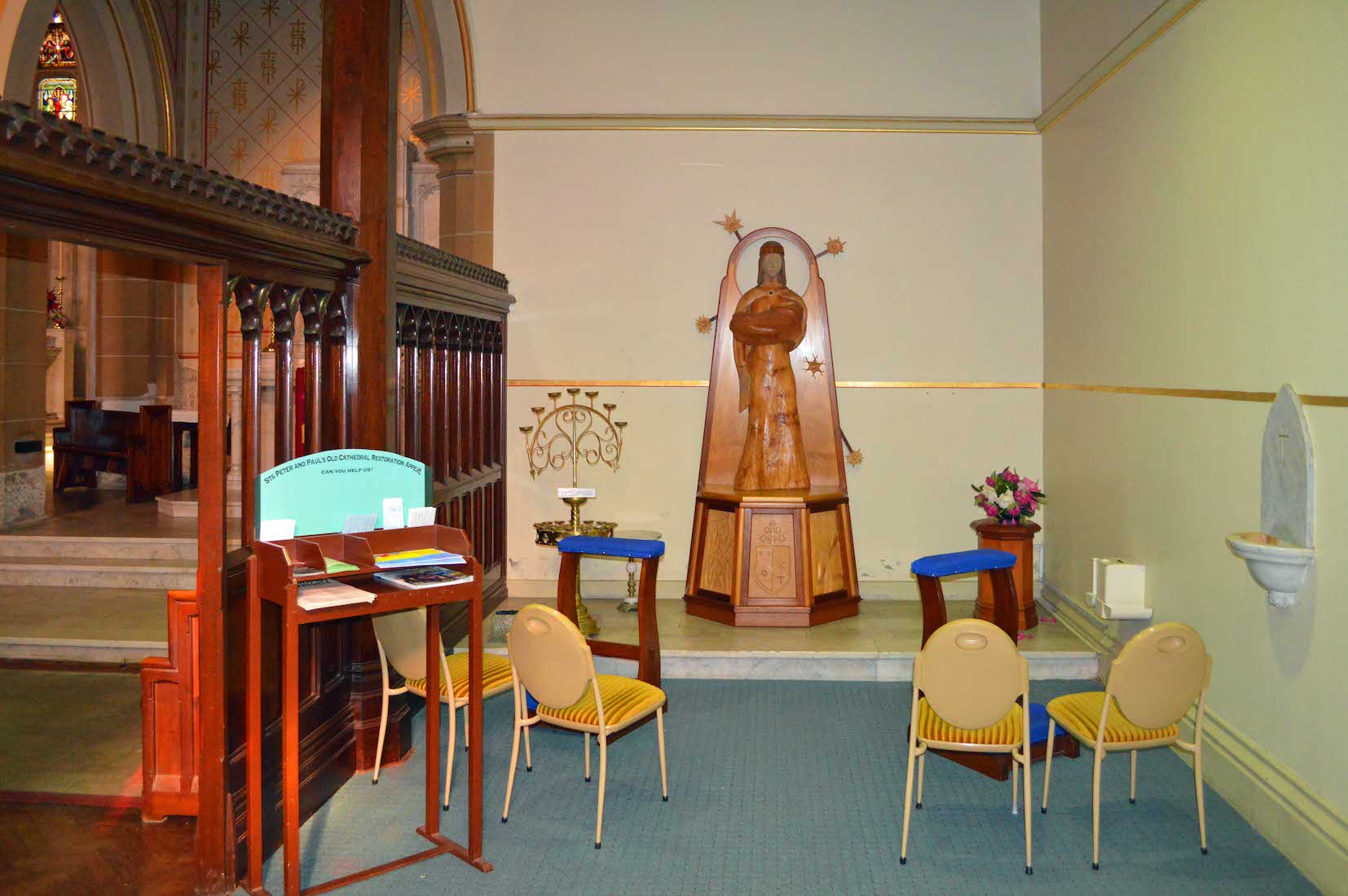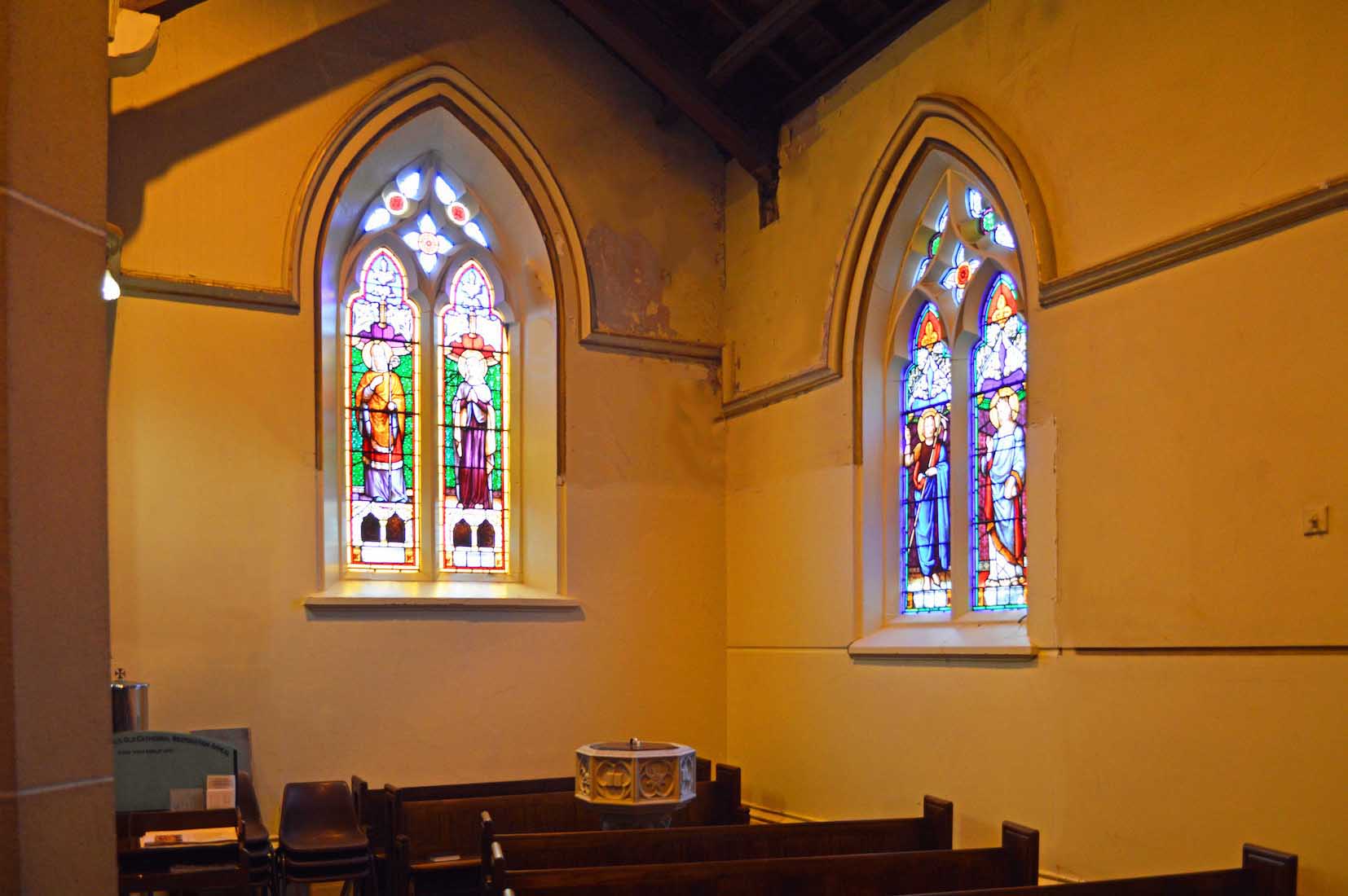
We begin our investigation of the Cathedral interior in the North West corner of the nave. The poor state of repair is immediately obvious. Of interest in this corner are the two stained glass windows and the baptismal font. INDEX
22. NORTH WEST WINDOWS
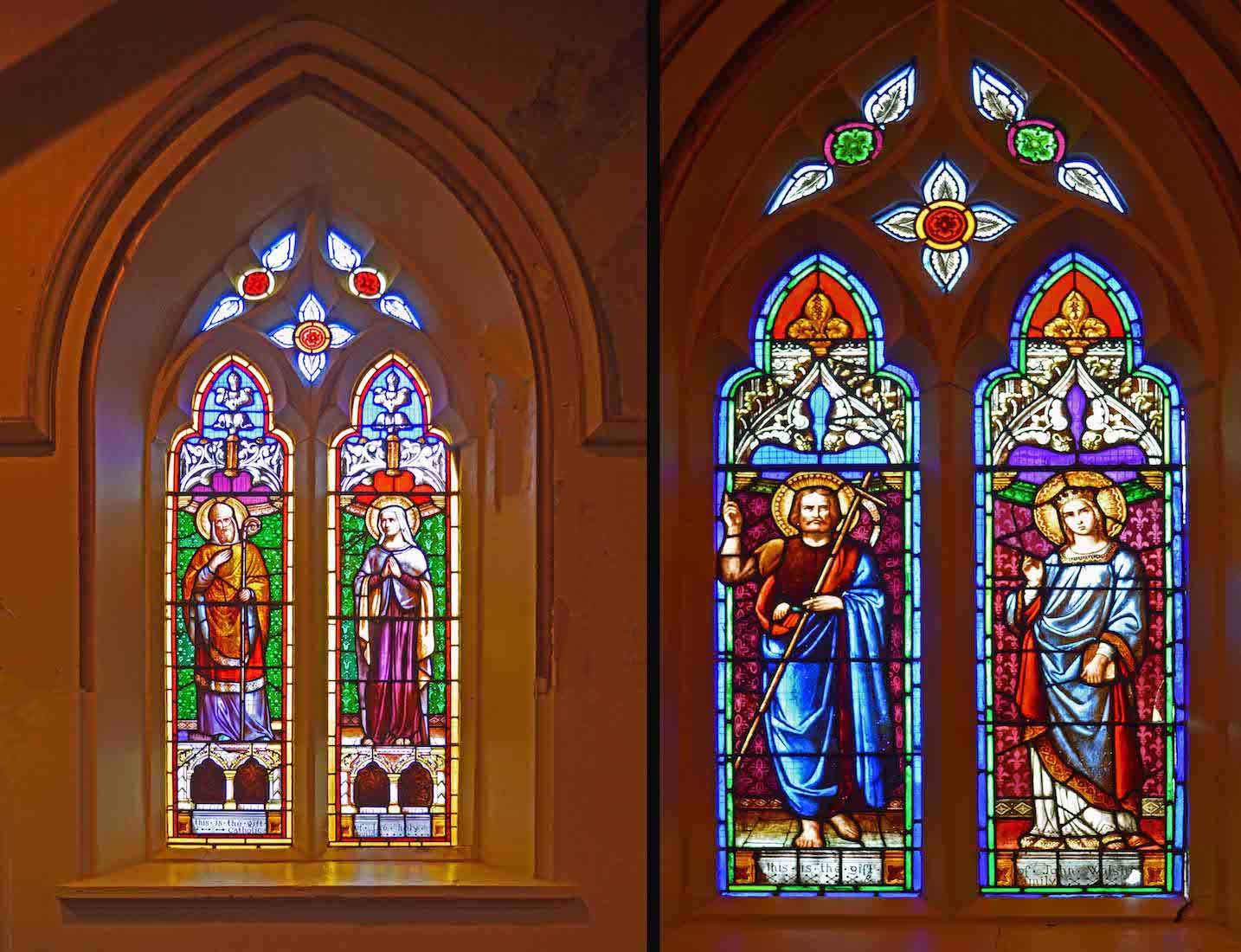
These windows are the gift of the Holy Catholic Guild and Joan Walsh and family respectively. At left is pictured an unnamed saint and St Mary. At right we see the Risen Christ, and Mary Queen of Heaven.
23. FONT
The attractive font has a four-sided column with an angel on each face. The nearest angel carries a shield with the symbols ‘INRI’ – Jesus of Nazareth, King of the Jews. Above this is depicted the Lamb with Banner – a well-known symbol of Christ.
24. NORTH NAVE WALL II
The nave windows alternate with Stations of the Cross. Here we have at left, • VII Jesus Falls for the Second Time, and at right, • VI Veronica wipes the Face of Jesus.
25. NORTH NAVE WINDOW II
This damaged window shows an unknown saint at left, and St Jacques at right. ‘Jacques’ is the French form of James, so this is likely James, son of Zebedee who died in 44 AD. He was one of the Twelve Apostles of Jesus, and traditionally considered the first apostle to be martyred. He was a son of Zebedee and Salome, and brother of John the Apostle. He is also called James the Greater to distinguish him from James, son of Alphaeus and James the Just. James the Greater is the patron saint of Spain.
26. NORTH NAVE WALL III
The two Stations of the Cross depicted here are at left, • VI Jesus meets His Mother, and at right, • V Simon of Cyrene helps Jesus carry the Cross.
27. NORTH NAVE WINDOW III
These windows were given in memory of Edward Cunningham. The saint at right is St Francois de Sales. Franc(o)is de Sales (1567 – 1622) was a Bishop of Geneva and is honored as a saint in the Roman Catholic Church. He became noted for his deep faith and his gentle approach to the religious divisions in his land resulting from the Protestant Reformation. He is known also for his writings on the topic of spiritual direction and spiritual formation, particularly the ‘Introduction to the Devout Life’ and the ‘Treatise on the Love of God’.
28. NORTH NAVE WALL IV
The Stations of the Cross here show at left, • III Jesus fall the first time, and right, • II Jesus carries his Cross. In front of the door is a statue of St Thérèse de Lisieux (1873 – 1897). She was a French Discalced Carmelite nun, and is popularly known as ‘The Little Flower of Jesus’ or simply, ‘The Little Flower’.
29. ST THÉRÈSE
Thérèse has been a highly influential model of sanctity for Catholics and for others because of the ‘simplicity and practicality of her approach to the spiritual life’. Together with St. Francis of Assisi, she is one of the most popular saints in the history of the church. Pope Pius X called her ‘the greatest saint of modern times’.
30. NORTH NAVE WALL V
This is the First Station of the Cross, in which Jesus is condemned to death.
31. NORTH NAVE WINDOW V
The saint(?) at right is Patrick Gooley, whose fame does not appear to have spread abroad. (The notation V denotes the bay number here.)
33. ORGAN
It is claimed that this organ is the finest-sounding and best-preserved Hill organ in Australia after Sydney Town Hall. It was ordered in 1889 as a gift from Mrs J.G. Dalglish and opened in 1890 by W.T. Best. The organ has never been altered in any way and a restoration, retaining all original features, was undertaken in 1980. The organ is located in a spacious gallery and represents English organ sound at its prime. As a heritage item, this organ is internationally significant.
34. NORTH ENTRY WINDOW
This unusual window featuring the Risen Christ is seen looking out to the Northern entry foyer.
35. NAVE VIEW
Some of the warmth and ambiance of the Old Cathedral is captured from this angle on a sunny afternoon.
36. WEST WINDOW
We move across the front of the nave and look back down the aisle to the West window. From left to right, the lights of the window show: St Paul, St Mary and the baby Jesus, the Risen Christ, and St Peter holding the Keys of the Kingdom.
38. SOUTH TRANSEPT WINDOW
Most of the South transept window is visible from the nave. The upper figures are Christ in the centre, with Moses at left (with ‘horns’) and Elijah at right, representing the Law and the Prophets. The depiction of a horned Moses stems from the description of Moses’ face as ‘cornuta’ (‘horned’) in the Latin Vulgate translation of the passage from Exodus in which Moses returns to the people after receiving the commandments for the second time.
39. ABOVE THE SOUTH DOOR
These little coloured floral glass panels are above the door in the South transept.
40. SOUTH TRANSEPT CHAPEL
The South transept is partitioned off to form a small chapel. It appears to be a secondary ‘Lady Chapel’.


